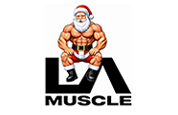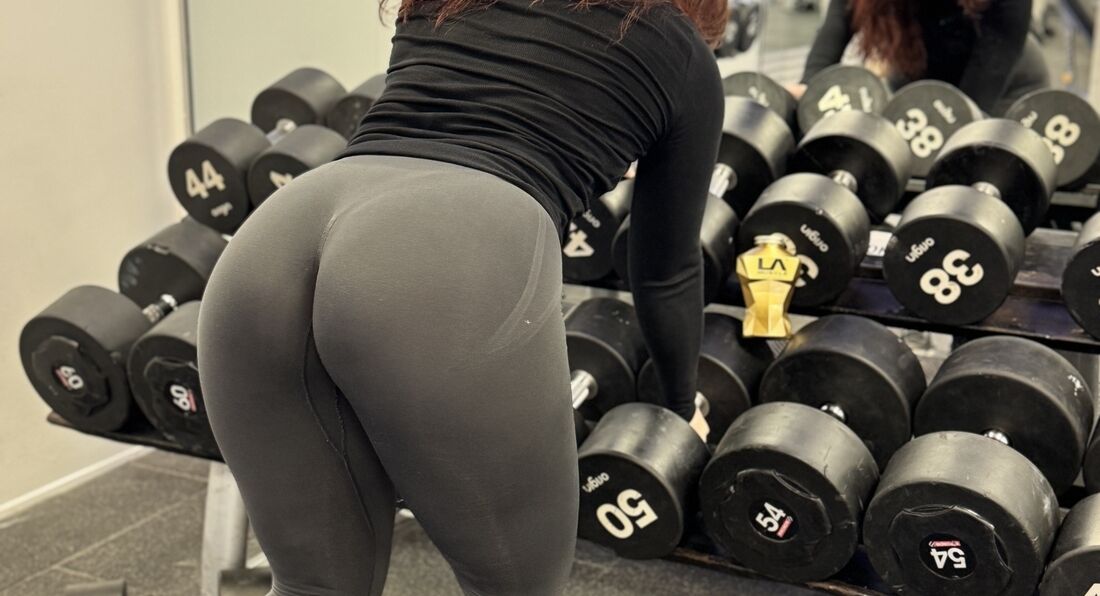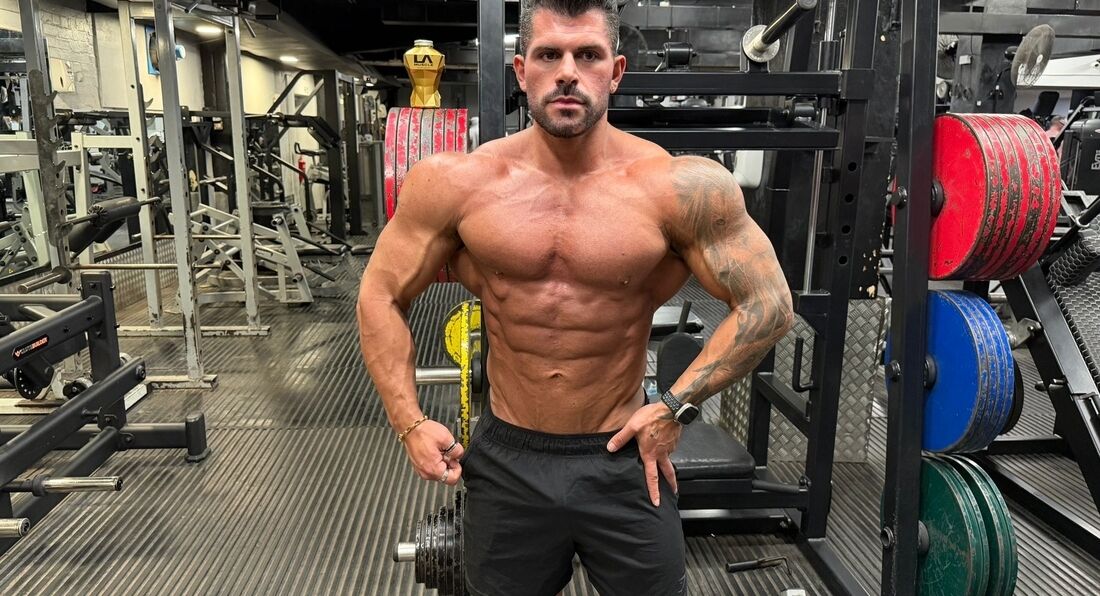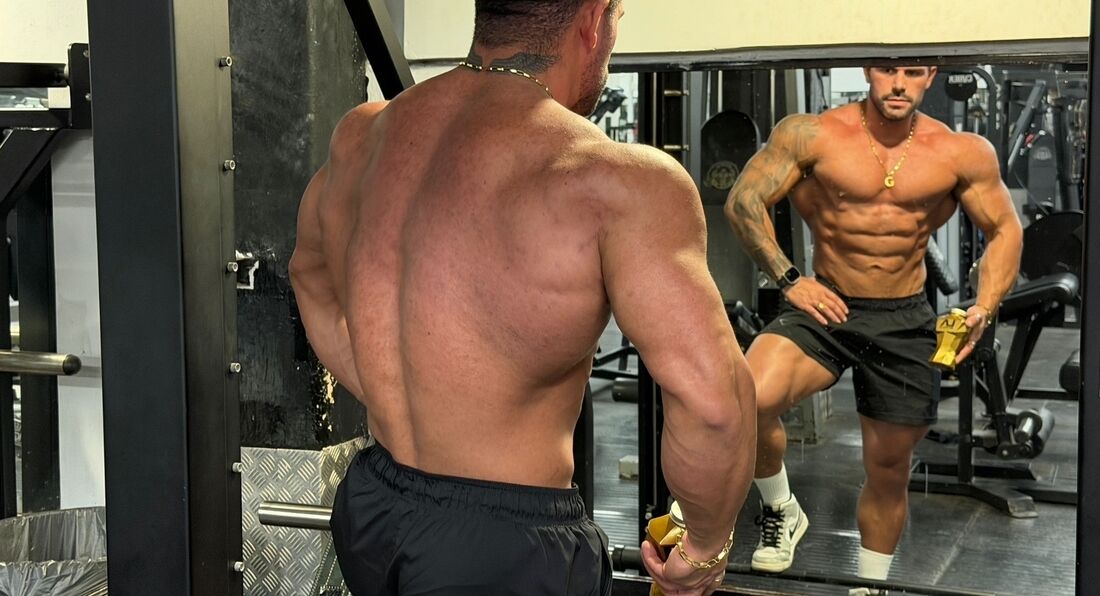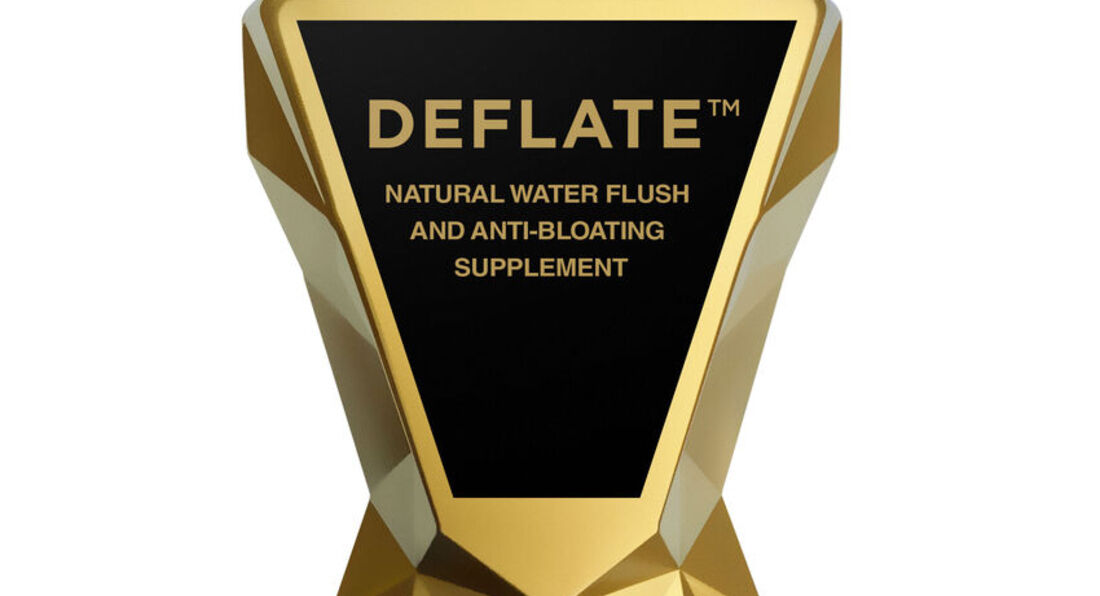The Knowledge > How To Build Muscle >
Sunday, 18th January 2009
ANB Champion David Lewis on eating for muscle size
How much food to build the right body?
By LA Muscle on 18.01.2009 11:23 am

It is with great pleasure that I write this, the first of my regular columns for the LA Muscle website Magazine. The chance to write for them happened quite by chance. The world of bodybuilding is quite small. When at a show recently, I bumped in to some faces I recognised for distant days past. We were at that time both involved in other projects. We sat and talked for while and we realised that our outlooks on the sport were from a similar standpoint. With that in mind, I was delighted when it suggested to me that I should write for them.
You may well have read some of my work before in MuscleNews or Musclemag. With this being my first piece for LA Muscle, I thought it might be of some interest for you to know a little about my background. Hopefully, by recognising that I am the same as you, have made the same mistakes and had to tread the same long path to achieve my goals, it will help you to appreciate and believe in what you read.
I began training specifically for bodybuilding in 1993. In '94 I made my contest debut with the ANB. At the time of that first outing I weighed 160lbs (11st 6lbs) on stage. I took time out after the ANB Britain that year to improve and reflect upon what had happened in that first year. Having an analytical mind, I questioned not only my training, but also that of most people around me in the gym. This was at the time of Dorian Yates domination of the sport. As such, heavy duty, high intensity and low volume training were the buzz words of the time.
Rather than just relying on the second hand words offered via Flex, I decided to get in touch with the figurehead of this style of training, Mike Mentzer. We first spoke at the very tale end of 1994. We spoke every two weeks and it culminated in my going out to stay with him in Venice, California and training under his watchful eye. We continued our communication until early in '96 as I got ready to once again compete.  Mike taught me an awful lot. My mind was like a dry sponge waiting to absorb all his lessons. I have much to thank him for. He taught me so much about physiology, overtraining, stress, rest, recovery and all the other areas that go towards making a success out of each and every visit to the gym. Due to his brief, infrequent and intense training sessions, when I got back on stage in 1996 I weighed 175lbs or 12st 7lbs.
Mike taught me an awful lot. My mind was like a dry sponge waiting to absorb all his lessons. I have much to thank him for. He taught me so much about physiology, overtraining, stress, rest, recovery and all the other areas that go towards making a success out of each and every visit to the gym. Due to his brief, infrequent and intense training sessions, when I got back on stage in 1996 I weighed 175lbs or 12st 7lbs.
That was a fifteen pounds increase in quality muscle in a little over a year. And that was all done naturally! As you know it is this style of training that LA Muscle endorses to all of its valued clients. They recommend it as they know it works. I competed both in '97 and '98, making the ANB Britain heavyweight line-up on both occasions. In 1997 I weighed 186lbs and by '98 I was up to 192lbs. You see through training smart and more importantly, eating right, gains are there for the taking. I firmly believe there is no such thing as a hard gainer, merely a slower gainer.
Just to bring my competitive history right up to date, in May of this year (2000) I competed in the London & South East, EFBB show. There I weighed 215lbs having taken 1999 out in order to rest and gain some more muscle. As I write this, I am currently up to 260lbs and waiting to compete in May 2001. 
I've written all of this as I feel that if you are to have any respect for what I write now and in the future, it is important that you know I have been through it all. With the knowledge that I have gained not only from my own experiences, but the numerous men and women I've advised and the pros that I have interviewed, I can hopefully help you to avoid many of the pitfalls that await you on your journey of physical development. I promise that I will try my utmost to put all the information across in an easy to understand format. Should there ever be any point you would like to discuss further or clarify, please feel free to contact me at the e-mail address shown for consultation fees etc.
Right, now we have the introductions out of the way, I have decided to start this series looking at the subject of nutrition. If I had my time over, the one area I would have tried to read and learn more about would have been what takes place outside of the gym and in the kitchen. As a beginner, virtually any kind of training stress will witness a result. You therefore foolishly assume that whatever you eat, you will still make improvements. If only this brief utopia was longer in duration. That spell of constant strength and size increases will cease as soon as the body adapts to the training stress placed upon it. This is where many a keen trainee gives up believing that this is as good as it gets.
If only they knew that all they all they need do is to address what they are eating. This and supplementation is the "little secret" that all the top boys know will yield unending progress. The age old saying of "you are what you eat", is never more true than when applied to the sport of bodybuilding.
As much as this issue is simple, it has been made to appear so very complicated. The manner in which many of the American articles are penned makes it sound so scientific that it scares off many from trying to improve their diets. Honestly, there is no mystique to it. With the information that you are about to armed with, a first class, bodybuilding diet is yours. I am going to assume that this being written for the novice. For those of you more advanced, sorry, but matters for you will be dealt with in future columns.
HOW MUCH?
All food contains calories. Calories are the means by which the body generates energy. A single gram of either protein or carbohydrate contains only four calories. The same measurement of fat contains a little over twice that, in having nine calories. Now you can see where the idea of low fat diets came from. Excess calories are stored within the body as fat. To drop bodyfat, it is therefore imperative that you consume less total calories than the body requires daily. In so doing, the body will search for an alternative energy source, to replace the energy once given it by excess food.
The good news is that the first and easiest form of energy for it to recruit, is fat. To evaluate how much food you need daily is easy. Keep a record of what you eat and drink over a period of seven days and work out the calories ingested. If your bodyweight is static over that period of time, then that will be your basal metabolic rate. Your maintenance level. To drop weight, shave 400-500 calories a day off your daily total, and conversely to add weight add in a extra 400-500 calories.  These figures are chosen as one pound of fat is compromised of 3500 calories. So 500 calories more or less over seven days, equals 3500. See, simple. In basic terms, as far as the body is concerned, a calorie is a calorie. If your daily calorie budget was say 3000 calories, and you chose to eat only 3000 calories worth of cream cakes, then you would not gain weight. It wouldn't be very balanced either, admittedly, but I use that extreme example just to stress a point. Of course, as athletes and bodybuilders, we are looking for a perfect diet. A diet that is tailored to create muscle.
These figures are chosen as one pound of fat is compromised of 3500 calories. So 500 calories more or less over seven days, equals 3500. See, simple. In basic terms, as far as the body is concerned, a calorie is a calorie. If your daily calorie budget was say 3000 calories, and you chose to eat only 3000 calories worth of cream cakes, then you would not gain weight. It wouldn't be very balanced either, admittedly, but I use that extreme example just to stress a point. Of course, as athletes and bodybuilders, we are looking for a perfect diet. A diet that is tailored to create muscle.
WHAT TO EAT?
So, we've established that you are going to eat, say, 3000 calories a day. For hard training bodybuilders your first requirement should be protein. The days of high carb diets are a thing of the past. Now days, nearly all bodybuilders follow a high protein diet for many reasons. Certainly when dieting I like to make up almost 60% of my diet from first class protein. That works out to 1800 calories per day will come from protein, and as there are 4 calories per gram, that will be 450gms of protein per day. Assuming that you eat six small'ish meals, that works out to 75gms of protein per sitting. You may well of heard that we can only assimilate 40gms at once. Once again, that is old data.
Supplements such as pro-hormones and whey based protein drinks, means the body can easily deal with larger servings. Look upon it as an insurance. Even if the body does waste a little of the protein, better it has plenty available to make sure it has had all it needs to re-build the muscle after a strenuous workout. My preferred protein foods are skinless turkey or chicken breasts, tuna, egg whites (and some whole eggs) and lean steak. One last point on protein that I have always found to be of benefit with regard to protein, is to mix protein sources at each sitting. I will typically do this by having a protein drink along with say my eggs , steak or turkey. This is always how I approach my personal eating regime.  Next, we must consider carbs. 30% of your diet should be made up from complex, low glycemic carbs. So, from our 3000 calorie diet, that would be 900 calories, or 225gms. Some popular carb sources such as white rice and baked potatoes are actually treated within the body as simple carbs. This means that they increase the sugar in your blood very rapidly, but drops off equally as dramatically. The other downside of this scenario is that it creates a huge muscle hormone spike. Muscle hormone is released by the pancreas to stabilize blood sugar. Although muscle hormone is a strong cell growth factor, possibly the strongest one naturally ocurring in the body, it also has a nasty way of creating bodyfat. When at the supermarket looking to chose your carbohydrates, the best rule of thumb is to look for the most unrefined ones. These would typically be brown rice, sweet potato, oats, yams and fibrous vegetables like cauliflower and broccoli.
Next, we must consider carbs. 30% of your diet should be made up from complex, low glycemic carbs. So, from our 3000 calorie diet, that would be 900 calories, or 225gms. Some popular carb sources such as white rice and baked potatoes are actually treated within the body as simple carbs. This means that they increase the sugar in your blood very rapidly, but drops off equally as dramatically. The other downside of this scenario is that it creates a huge muscle hormone spike. Muscle hormone is released by the pancreas to stabilize blood sugar. Although muscle hormone is a strong cell growth factor, possibly the strongest one naturally ocurring in the body, it also has a nasty way of creating bodyfat. When at the supermarket looking to chose your carbohydrates, the best rule of thumb is to look for the most unrefined ones. These would typically be brown rice, sweet potato, oats, yams and fibrous vegetables like cauliflower and broccoli.
The 10% fat in your diet does not need to be sought. It will come in hidden forms from your lean protein¹s, oats and whole eggs. It might take a little while for you to adjust to eating a high protein diet, but as your body becomes used to it, the benefits are numerous.
Firstly, it is extremely hard for the body to convert good quality, lean protein in to bodyfat. It is a highly complex biological pathway, and the body will inevitably look for the quickest and easiest route, i.e. fats and carbs. In digesting protein, the body has to work very hard. It actually burns calories to simply break the food down. So, you are getting leaner by simply switching to eating a high protein diet. There is also one other great benefit to a diet of this nature. Protein acts as a natural diuretic. So adding it all together, by eating a mainly protein based diet, it will make you leaner, harder and quite likely stronger too. It's a win, win situation, so what are you waiting for?
One minor word of caution. When eating a high protein diet, your kidneys will be working a little harder to deal with the nitrogen and the associated waste. To minimise any risk, be sure to drink plenty of bottled mineral water. This will help flush the toxins through your body, improve skin quality and increase both stamina and endurance. It is virtually impossible to drink too much water. Yet again, it is a diuretic in itself quite aside of the other benefits listed above. So the message here is DRINK!! No matter where I am, I always have water near by. In the car, at the gym or at work. I've learnt how damaging it can be not to drink enough.
My last little piece of advice would be to initially at least, keep a dietary diary. It may seem an annoyance, but it will teach you an invaluable lesson. Without weighing and recording your foods, you will never be able to accurately guage how many grams of say, protein your are ingesting or what your total daily calories are. These elements are crucial in making the most of your diet. To be honest, I now only do this in the twelve weeks pre-contest. I've become fairly adept at being able to look at a portion of food and guess it's calorie value or protein content. You see, at this time of year, they are the only two values that matter to me. I want to be sure I'm getting enough surplus calories to allow for growth, and enough protein to support that growth. Without having gone through the years of writing and weighing all my foods, I would not now be in a position to guess with such reasonable accuracy.
Admittedly, I do tend to stick to pretty much the same foods year round, all the basics, which helps in this task. I am no puritan who denies myself of all pleasure, but I take this view. I chose to be a bodybuilder, and I intend to be the very best I can be. To go and eat poor quality food is cheating no one but myself and only aiding my fellow competitors. But off season if I fancy flapjack or pizza, I will eat it. It's all food, but it will only be occasionally. Remember, it's you that wants a hard, muscular physique, so take every advantage at your disposal to achieve it. Eating right is the best way in which to do that.  It is like I said to you earlier, I promise that I'm asking you to do nothing that I haven't done myself. I hope that this first article has shown you how very simple eating to gain muscle truly is. Yes it is a science within the body, but all you have to do is be concerned with is giving it enough of the raw materials it needs. Bodybuilding nutrition is nothing more than eating the right amounts of the right foods at the right time.
It is like I said to you earlier, I promise that I'm asking you to do nothing that I haven't done myself. I hope that this first article has shown you how very simple eating to gain muscle truly is. Yes it is a science within the body, but all you have to do is be concerned with is giving it enough of the raw materials it needs. Bodybuilding nutrition is nothing more than eating the right amounts of the right foods at the right time.
I apologize if some of this article is going over old ground, but I had to start somewhere. LA Muscle has new people logging on all the time, and were keen to make sure that these people were getting the best advice possible to help compliment their choice of supplements. If there are any issues you'd like for me to write about in particular, then I am always open to suggestions, and don't forget, if you want personal advice, get in touch with me via my e-mail address: davidspeaksout@btinternet.com
I look forward to writing for you again very soon.
EDITOR'S NOTE: David has put on so much quality mass in the last 2 years that we didn't recognise him when we met him! If you want to train with a man who is intelligent and knows the inns and outs of this business, then drop him a line. He is a very charming and down to earth person; you won't be disappointed.
For more info on LA Muscle products please click here: supplements





